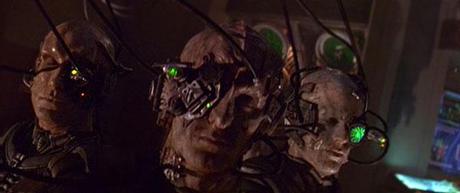The locus of social discipline has, in my estimation, shifted from the body to the mind. Before I explain this shift, which has been mediated by and through technology, let’s consider these famous passages from Foucault’s Discipline and Punish:
The body now serves as an instrument or intermediary: if one intervenes upon it to imprison it, or to make it work, it is in order to deprive the individual of a liberty that is regarded both as a right and as property. Physical pain, the pain of the body itself, is no longer the constituent element of the penalty. From being an art of unbearable sensations, punishment has become an economy of suspended rights. If it is still necessary for the law to reach and manipulate the body of the convict, it will be at a distance, in the proper way, according to strict rules, and with a much “higher aim.”
As a result of this new restraint, a whole army of technicians took over from the executioner, the immediate anatomist of pain: warders, doctors, chaplains, psychiatrists, psychologists; by their very presence near the prisoner, they sing the praises that the law needs: they reassure it that the body and pain are not the ultimate objects of its punitive action.
In modern justice and on the part of those who dispense it there is a shame in punishing, which does not always preclude zeal. This sense of shame is constantly growing: the psychologists and the minor civil servants of moral orthopedics proliferate on the wound it leaves.
For allusive reasons that are bolded above, I was reminded of these passages while reading about Steve Jobs, whom Atlantic writer Megan Garber aptly diagnoses as an “asshole.” Like most zealots, Jobs blindly believed that his vision — technology as connection, technology as power, technology as self — was world salvational. After remarking on the irony of unveiling consumer products with “religious zeal,” Garber comments on a famous advertisement which Jobs voiced and believed:
The misfits. The rebels. The troublemakers. The round pegs in the square holes. The ones who see things differently. They’re not fond of rules. And they have no respect for the status quo. You can quote them, disagree with them, glorify or vilify them. About the only thing you can’t do is ignore them. Because they change things. They push the human race forward. And while some may see them as the crazy ones, we see genius. Because the people who are crazy enough to think they can change the world, are the ones who do.
Setting aside for a moment the absurdity of these claims as they apply to Apple users and device addicts (all of whom are connected to power in ways they can hardly imagine), Garber correctly sees this as a progressive myth:
It’s a libertarian notion of human progress — progress as defined not by social connections, but by the rejection of them. The lone geniuses. The round pegs. The stubborn individualists. “A system can only produce a system,” Jobs remarks. “I don’t want to be part of that.” Which is both admirable and, in the context of Apple’s own story, flawed. Apple is — like everything else, you and me and Steve Jobs included — a system. It is, like everything else, the result of connectivity and exchange.
This is classic Durkheim, whether Garber knows it or not. But one question Durkheim did not ask, and which seems most relevant in today’s tech-addicted world, is whether the system of connectivity causes pain. Has our self-imposed tech discipline and faith in progress become a form of control? When Steve Jobs is messiah for many, these are questions we should ask.


